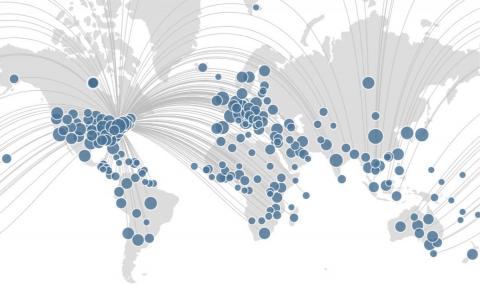
Investigators submitting proposals and Research Performance Progress Reports (RPPRs) to NIH should know it is critically important that they accurately identify any foreign collaborations associated with their research.
Question 6.a. on the “RESEARCH & RELATED Other Project Information” form asks investigators to identify if their project involves “activities outside the U.S. or partnerships with International Collaborators.” Question G.9 on the RPPR asks investigators to identify any “foreign component” of their research. A foreign component is defined as “any significant scientific element or segment of a project outside of the United States, either by the recipient or by a researcher employed by a foreign organization, whether or not grant funds are expended” (emphasis added). Examples include “collaborations with investigators at a foreign site anticipated to result in co-authorship; use of facilities or instrumentation at a foreign site; or receipt of financial support or resources from a foreign entity” (emphasis added). The full definition of “Foreign Component” can be found here.
The US Government has recently expressed serious concerns about the failure of researchers at U.S. institutions to disclose their relationships with foreign institutions. Several Federal agencies have indicated that failure to disclose such affiliations may jeopardize eligibility for future funding.
Penn State encourages international collaborations, but it is important for our investigators to be transparent about their foreign affiliations. Penn State’s Office of the Vice President for Research has compiled information in an effort to protect our investigators from accusations that they are concealing or misrepresenting their affiliations with institutions or individuals outside the U.S.
If anyone has questions or concerns about any of the information listed on this page, please contact John Hanold, associate vice president for research and director, Office of Sponsored Programs.